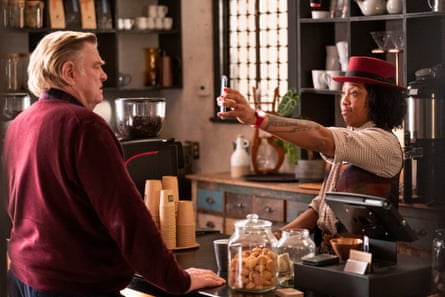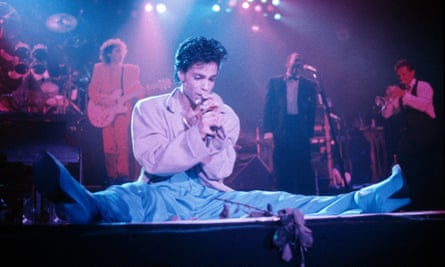Most people will do a double-take on hearing the premise of your new book – it’s such a novel idea that Charles Dickens and Prince are from the same mould.
Well, I didn’t worry too much about someone coming out with the same book just before mine.
Have you always been a Prince fan?
I was aware of him from the first album onwards and then I went to see him at this incredible show at Wembley Arena in the mid-80s, a sort of funk review with 15 people on stage and no gaps between the songs, one segued into another. It was extraordinary, and that turned me into a complete devotee.
What about Dickens? When did you first get into him?
At university, studying English. I had not read any Dickens at school and I was very glad I hadn’t, because I think you’re too young at that age to get him, certainly too young to understand that he’s funny. In my early 20s I was just about old enough to understand that there was something special going on.
Have you read every one of his books?
No, I haven’t read Barnaby Rudge – but it’s not one that anyone goes on about too much. I once told Claire Tomalin [author of Charles Dickens: A Life] I hadn’t read it and I think she said: “Don’t bother.”
What qualities do you think make both artists enduring and timeless?
It certainly helps that they were both superstars in their own lifetimes. I’m always slightly suspicious about writers who write for posterity but have no readership in their own lifetime. You think, well, how’s that going to work? They’re not going to be reading you in 100 years’ time if we’re not reading you now. And Prince and Dickens were popular in the sense that not only did they make lots of money, but everyone in the world liked them. With Dickens it was just extraordinary how far he penetrated in a country that still had relatively low literacy rates. Everyone knew who he was. And those serialisations… People seem to think that everyone serialised their books in those days but they didn’t. And when they did, it didn’t always work. Dickens made it work, and anyone who could afford the price of an issue and could read, read him. That’s just gone on and on. And those characters. So many of his characters entered the language. He’s incredibly present with us all the time in an extraordinary way.
You’re almost as prolific a writer as your two heroes – does writing come easily to you? It feels as though it must.
Yes, it does. It still feels to me as though I write maddeningly little during the course of a day but I do write every day and as a consequence words mount up and, by the end of the year, you have something to show for it. But it still feels like there’s too long between sentences.
You’re writing almost as much for cinema and TV as you are novels now, from Brooklyn to Love, Nina and State of the Union. In which medium do you feel most at home?
Whichever one I’m not doing at the time. The other one always looks a much better prospect when you’re in the middle of something tough.
You recently said you think the best writing today is on TV rather than in novels…
I think over the past 20 years, some of the best novels written, as it were, or writing that serves the function of a novel, have been on Netflix and HBO. The writing is complicated, the plotting is complicated. It has subtext, and people are really responding to it in a way that, unfortunately, is not happening with books. It’s not unlike Dickensian fiction, in that lots of people are watching weekly episodes of something that is very ambitious in scale and scope. Think of The Wire or Breaking Bad, or Succession. Also, if you look at the history of writing, writers tend to shift to wherever the work is. In the 1950s everybody wanted to be a playwright but it’s very hard to imagine if a writer had any choice of career at the moment that they would start with the theatre. Same with fiction, I’m afraid. If you want an audience then the place to go looks like it’s TV.

You’re not giving up on novel-writing, are you?
No, I’m not but the trouble is that because I’ve sort of established myself as a screenwriter people come to me with stuff. And a lot of the time, it’s really good and I can’t turn it down. And then, of course, you’ve invaded the space that was supposed to be for a novel. I don’t know if it matters to me so much though, because it’s all writing and it’s all creativity, and I feel fulfilled doing it.
What have you been working on?
I’ve been adapting a couple of books and I’m actually going to have a go at writing something for musical theatre. But who knows if it will ever happen.
How do you feel about reaching 65, older than Prince or Dickens ever made it to be? Does age matter to you?
Well, I think about it, obviously, but my career didn’t start till I was 35, which is when I was first published, so I feel like maybe I’m only around 55 now in terms of determination and energy. I know I’ll die not having finished what I wanted to do, it won’t run out by then, which is a slightly melancholy thought but perhaps it’s better to know that you’re going to be creating for the rest of your life than worrying about what to do when you retire.

